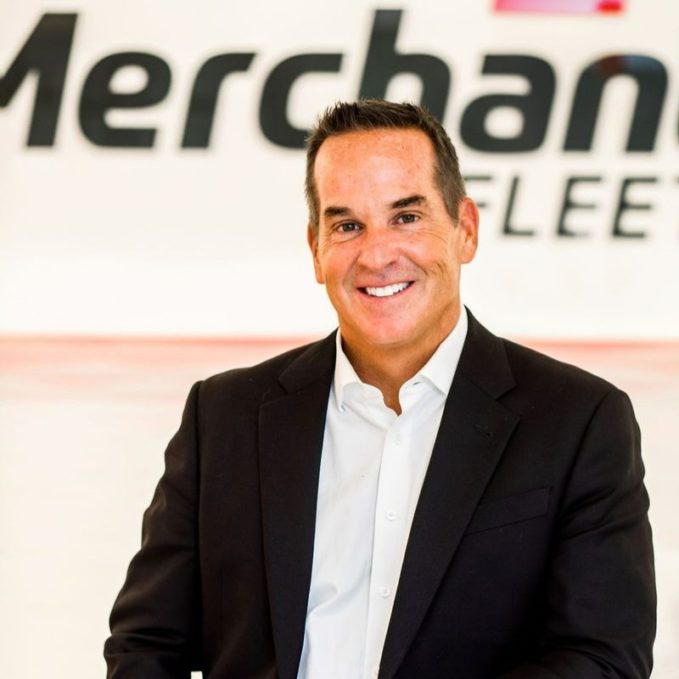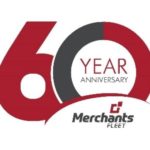
Fleet Management Weekly recently had the opportunity to speak with Brendan P. Keegan, Chairman, CEO & President of Merchants Fleet, to discuss the fleet management company’s exceptional growth, new ownership group, and plans for the future.
 FMW: Merchants has been on quite a roll for a number of years, and now you have been acquired by Bain Capital. What does this mean for Merchants and what does it mean for your clients?
FMW: Merchants has been on quite a roll for a number of years, and now you have been acquired by Bain Capital. What does this mean for Merchants and what does it mean for your clients?
Let’s start with where we’ve been already with Bain. Bain came in two-and-a-half years ago as our growth capital partner. As we continued to grow, we really needed an external investor to strengthen our foundation. Since the beginning of 2018, we’ve grown fivefold on our top line.
As we grew, it placed stress on our ownership group, and we recognized the need for outside professional ownership. At the same time, Bain was already invested in Merchants for a number of years so they, too, recognized a solid business opportunity.
As we brought Bain in, we also brought ADIA, and all 11 leadership team members as co-investors.
 Altogether, we have three groups, led by Bain Capital; they are all invested in the business for the long-term.
Altogether, we have three groups, led by Bain Capital; they are all invested in the business for the long-term.
We think the investment from the leadership team sends the right message to our employees, to our clients, and to the entire industry. For instance, when we did our employee huddle immediately after the announcement, we didn’t get many questions on, “Hey, Brendan, are you staying? Are our other leaders staying?” because they saw us as investors. I think that has made all of our stakeholders feel good.
As a former client and advisor, I look at this and say, “There are so many things that haven’t changed.” Our core values haven’t changed. I go back to 2009 when I was a client. We held the country’s biggest blood drive in 2009, and we still do it in 2022. I participated in a softball game in 2010 with the company as a client, and we just held that event last week.
There’s no change to our high-touch service, that is, how we provide service to our clients. We continue to invest in our people the way we always have. Overall, when I look at Merchants today, we have the same values and the same dedication to extraordinary service.
What has changed over the last number of years is our vision. I would say it’s bigger, it’s bolder, it’s more innovative, and it’s long-term. And, that’s what’s been behind a lot of our growth.
In our vision, we really look at ourselves, not as a fleet management company. I know that sounds different, but we really see ourselves as a fleet technology company.
 As we put our growth playbook together, we don’t really look at what our competitors are doing and what fleet management companies are doing. We go out to Silicon Valley. We go out to Rt. 128 in Boston. We go down to Raleigh-Durham, and we look at what the leading technology companies are doing.
As we put our growth playbook together, we don’t really look at what our competitors are doing and what fleet management companies are doing. We go out to Silicon Valley. We go out to Rt. 128 in Boston. We go down to Raleigh-Durham, and we look at what the leading technology companies are doing.
We also turn to the financial services industry and ask, “What are some of the most innovative fintech companies doing, and how are they growing?” Merchants sees itself as a fleet technology company instead of a fleet management company.
As we look to the future, we ask, “Where do we see ourselves and the industry going?” We’ve already outlined a number of new innovations and services that are going to take some investment on our side.
We were already making significant investment into technology as all our peers are, but with the investments from our new ownership group we are going to accelerate it.
We are also going to be looking for some geographic expansion. We are North American-based, predominantly in the US, but we are looking to stretch beyond that.
Equally important, because sometimes we get enamored with talking about what’s going to change, what’s not going to change is the number of team members. We are not planning any job losses because of the change in ownership. As a matter of fact, we expect some promotions as we continue to scale.
 There have been no changes to our technology platform. Everything’s running as it has been, and we will continue our investments as planned to enhance the customer and user experience. There’s really no disruption because we don’t have any competing interest.
There have been no changes to our technology platform. Everything’s running as it has been, and we will continue our investments as planned to enhance the customer and user experience. There’s really no disruption because we don’t have any competing interest.
The last thing I’d say is, there’s no confusion. I had a chance to talk with several of our clients, a number of our large OEMs, our client advisory board, and some of the positive feedback I heard included, “Hey, I called the same numbers I called before the announcement and spoke to the same people.” There’s not going to be any disruptive change, which I think goes a long way in assuring our partners and our clients.
FMW: What new products and initiatives will we see from Merchants in the next few years?
As we look for innovations in our products and services, I will start with TotalConnect, our industry-leading connected fleet vehicle management service.
We want to make it as easy as possible for fleet managers to identify driver behaviors and make informed business decisions. We will continue to enhance our connected fleet solutions that will allow us to integrate data from multiple OEMs and telematics solutions.
 The second area is in our TotalView technology platform. We’re continuing to embed AI into TotalView and deliver even deeper data analytics. When we look to the technology and financial services industries, AI and BI are game-changing opportunities.
The second area is in our TotalView technology platform. We’re continuing to embed AI into TotalView and deliver even deeper data analytics. When we look to the technology and financial services industries, AI and BI are game-changing opportunities.
The next area of opportunity, especially in light of the problems the industry experienced in the past 24 months, is new supply chain offerings.
We know that fleets in every industry face vehicle availability issues. They are looking for vehicles. We have been innovative at coming up with new ways to get our clients’ vehicles when they just aren’t coming off production lines.
We also have been very creative in our rental business model, including establishing out-of-the-box relationships. Many times, I talk to a client who will say, “We don’t know how, but you’ve just got us vehicles.” I think we have been opportunistic there and will need to continue with that seizing new and different opportunities.
The next area of innovation is related to electric vehicles. As we look at EVs, the focus is more on EV infrastructure — everything from charging to payment systems. The concern is how does a fleet deal with three or four different charging systems.
We want to make that effort simpler, and we believe that we have some real opportunities through the ecosystem that we have built out.
Another opportunity to improve things for fleet managers is remarketing. We have been innovative and having looked at other industries and how they remarket. For instance, you can look to the technology industry and how they remarketed. You can look at the energy industry and how they’ve handled remarketing.
We can adopt some of those practices, and we have more and more clients who are ready to look at remarketing in new ways. I recently had a client who said, “We’ve been doing this for 40 years, and we’ve never thought of anything like that!” That is simply because fleet providers have been looking at remarketing only from a fleet management perspective rather than through the purview of technology or financial services.
FMW: How does Merchants Fleet help fleets get electrified and then help them balance electrification with their other priorities?
 Electrification is probably the hottest topic in the entire industry, but when you meet with clients and prospects, we talk about electrification in the larger environmental, social, and governance, or ESG, landscape. First, we want to understand the organization’s ESG strategy. Where does electrification fall within that? Then, we want to know at what stage the client or prospect sees themselves within the adoption life cycle. Do they see themselves as innovators, early adopters, early majority, late majority, or laggards? And, by the way, a laggard sounds like a negative word, but if electrification isn’t right for a fleet, then being a laggard is the right strategy.
Electrification is probably the hottest topic in the entire industry, but when you meet with clients and prospects, we talk about electrification in the larger environmental, social, and governance, or ESG, landscape. First, we want to understand the organization’s ESG strategy. Where does electrification fall within that? Then, we want to know at what stage the client or prospect sees themselves within the adoption life cycle. Do they see themselves as innovators, early adopters, early majority, late majority, or laggards? And, by the way, a laggard sounds like a negative word, but if electrification isn’t right for a fleet, then being a laggard is the right strategy.
With this information, it’s all about process. How many vehicles this year, the next year, in ‘25, in ‘26, in ‘27? What type of vehicles? A company might use vehicle X today, but there will be new vehicles coming out all the time.
We have our own proprietary five-step process to deliver the best solution for each customer, and that is something that we continue to invest in.
The third area in electrification is supply. If you don’t have the supply, then everything else is just a conversation. We have reserved over 40,000 EVs over the last 18 months, and we have rolled out a large number of those.
The next part of our electrification effort is having an adoption program. It’s difficult for a client to really flip the switch to electrification without having the chance to really adopt it.
The more adoption programs we can put in place will help our clients administer both the technology change and the change management issue. It’s a culture change for the actual drivers.
As we all know, if you switch vehicles, 20% of the drivers are going to go, “This is great!”, 20% are going to go, “Can I have my old F-150 back? I don’t like this Lightning thing.” We need to have adoption programs in place to win over the reluctant and have full support for the strategy.
 The options for adoption will help us align the process to a client’s needs. A fleet manager having to order a hundred of a specific EV can be intimidating. On the other hand, if he or she can order five of a few different kinds, test them and verify that they fit the need, there’s less risk. So, these adoption programs are going to be key for cultural change management.
The options for adoption will help us align the process to a client’s needs. A fleet manager having to order a hundred of a specific EV can be intimidating. On the other hand, if he or she can order five of a few different kinds, test them and verify that they fit the need, there’s less risk. So, these adoption programs are going to be key for cultural change management.
We have put together an electrification hub, which is something that really pulls all of this information together into a knowledge base. It’s exciting to talk about it, but you’ve got to start with, “What’s the strategy and what’s our rigorous process?” Then, don’t deviate from that process unless the strategy changes.
FMW: Please tell us about Merchants’ short-term and long-term rentals and how they benefit customers?
I go back to 2009 when I was a client, and I had a fleet of 10,000. Twice a year, I would fleet up to about 11,500 for two months in the summer. So, I can appreciate, and our clients really appreciate Merchants’ short-term rental capability.
Many last mile clients are now headed into their peak season, but other industries have peaks at different times of the year. So, our short-term rentals, which we define as three months, are purpose-built.
These rentals allow us to more broadly serve our clients because we can service their long-term lease needs from one to five years from class one up to class eight, but then we can bring in rentals when business demands it.
During the supply chain problem, there has been a surge in rental needs due to the inability of fleets to get vehicles. These programs, therefore, are helping different clients every single day!
Short- and long-term rentals have been a real differentiator for us, allowing our clients access to a broader selection of ready vehicles. One thing we talk about is, “Are your fleets ready?” These programs provide new capabilities for our clients to answer, “Yes!”




